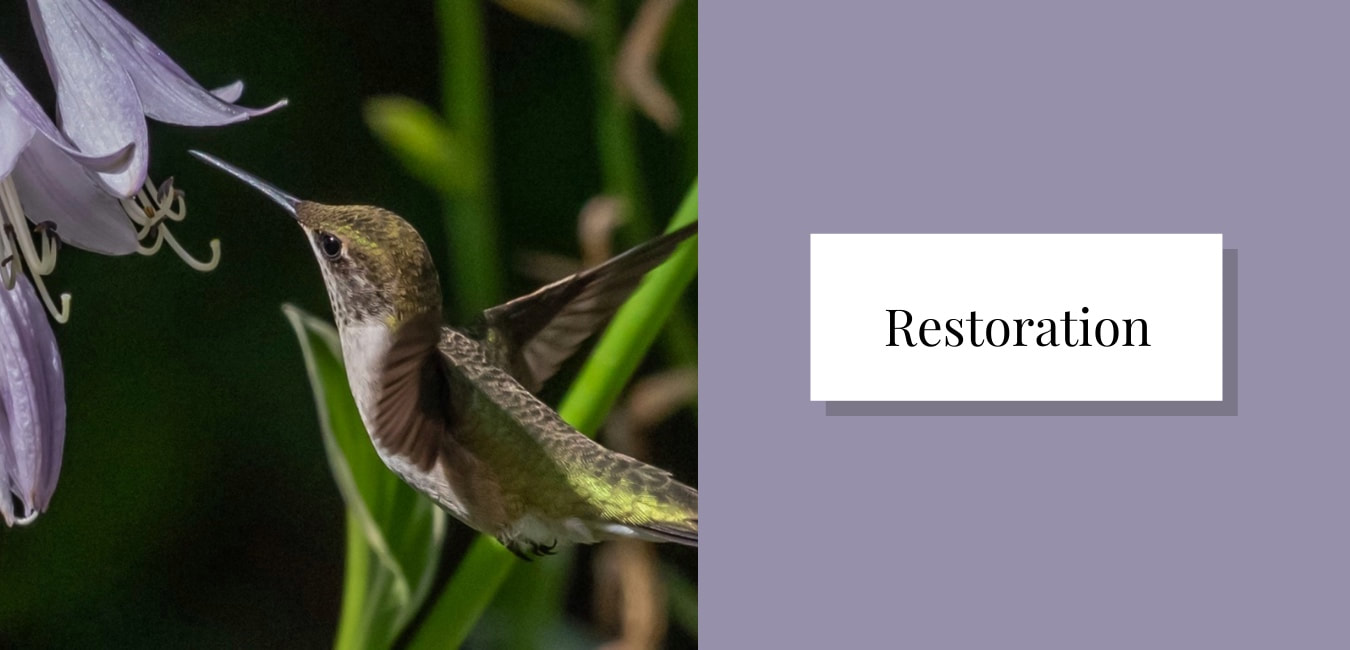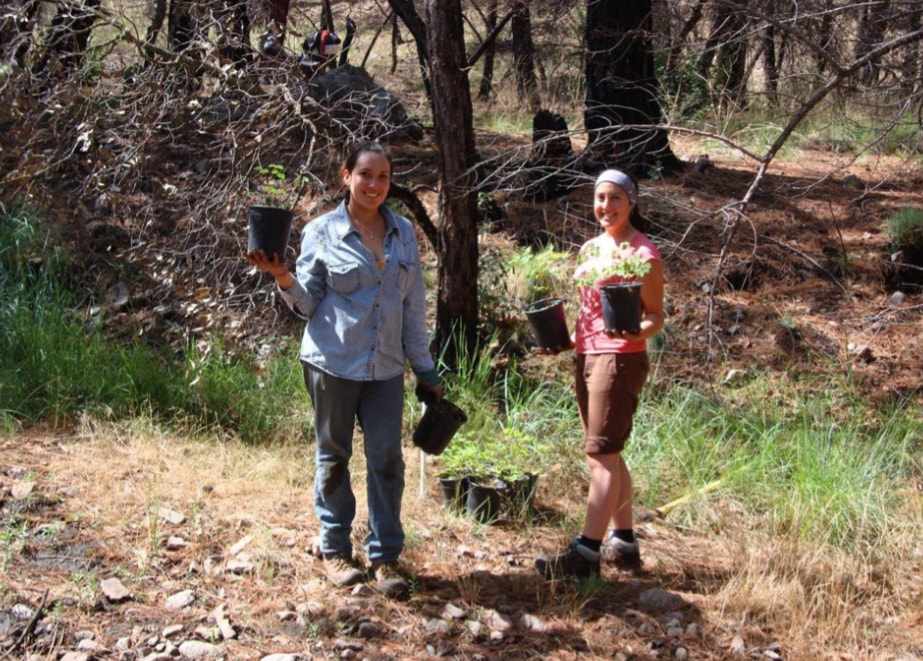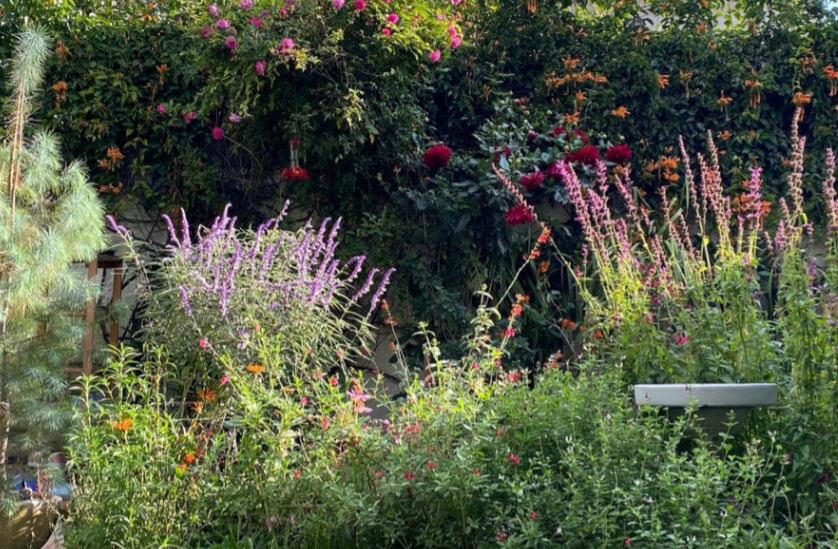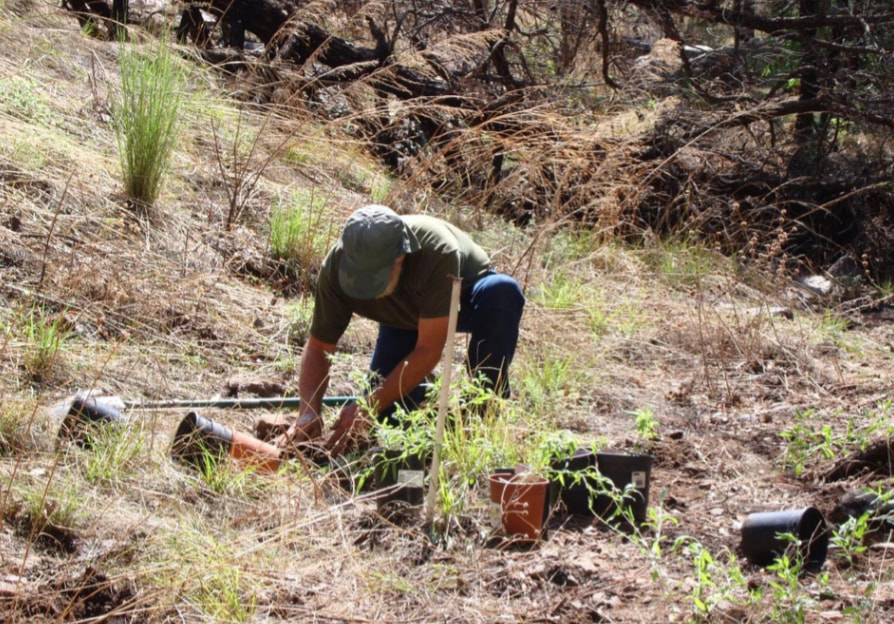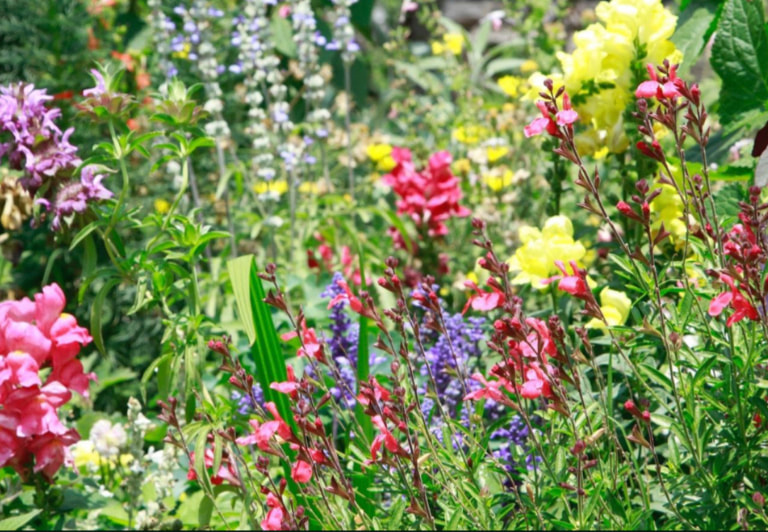Achieving the persistence of pollination systems in the landscape requires the design of strategies that incorporate an understanding of the system as a complex socio-environmental system that originates from the feedback between social and natural systems. Our Restoration work area includes six programs divided into three categories--hummingbirds/science, human/community, and services/partners--that seek to create localized community-based solutions to rehabilitate and restore degraded ecosystems. Simultaneously, we work to create and sustain a conservation economy that helps provide adequate habitat conditions for hummingbirds.
Programs
SPECIES NEEDS
Aims to identify and restore degraded ecosystem services and critical habitats where hummingbird threatened species occur:
- Assessing the current state of the ecosystem where threatened species habit
- Creating localized community-based solutions to restore habitat
- Encouraging regional efforts and training to achieve restored habitats
Current Projects
- Threatened hummingbirds database
- Endangered hummingbird habitat condition's review
- Conservation of Eupherusa ridgwayi, a community-based based program in Nayarit, México
NECTAR LANDSCAPE CONSERVATION
Strategies to identify gaps in the nectar landscape and to establish regional nectar corridors:
- Identifying mismatches of plant-pollinator
- Developing sources that can inform about the nectar plants
- Supporting the protection of existing native nectar landscapes
- Creating nectar corridors
Current Projects
- Identifying areas of concern for hummingbird nectar landscape restoration
- Creating regional and horticultural nectar plant lists
- Offering hummingbird habitat restoration planting recommendations
COMMUNITY RESTORATION
Created to work with the community to promote and execute integrative habitat management actions, ll:
- Organizing and guiding the activities to restore the nectar landscape
- Actively replanting a wide range of native plant species
- Assisting new local coordinators in the execution of restoration activities
Current Projects
- Working with communities to identify restoration strategies
- Co-creating hummingbird habitat restoration action plan
PLANT AND NURSERY SUPPORT
Pursued to increase availability of nectar resources, expand the capacity of nurseries, and provide restorative economic opportunities, our strategies are:
- Building long-term restoration capacity to grow nectar native plants
- Providing technical support
- Creating partnerships and alliances with local nurseries and HCCRs
- Supervising the quality and process of the plant production.
Current Projects
- Developing sources and resources for HCCRs nurseries
- Increasing native plants on nurseries (Guatemala and Ecuador)
- Reclaiming native nectar plant and seeds reclaiming for restoring hummingbird habitat
- Establishing a training program for native plant production in local communities.
RESORTS AND RESERVES
Work for enhance the co-management of hummingbird habitat through local population involvement:
- Enhancing the role of local communities on restoration efforts
- Co-creating the best adaptive hummingbird habitat restoration plan
- Integrating restoration efforts in protected areas
- Creating partnerships and alliance with resorts to create hummingbird habitat
Current Projects
- Building partnership with Vidanta and use membership
- Developing Network of Golf and Resort Communities
NURSERIES AND GARDENS
To maintain hummingbird diversity and pollination services in natural and urban areas, our strategies are:
- Establishing wide-ranging partnerships and collaborations to create and preserve friendly hummingbird habitats
- Promoting the use of native plants and hummingbird gardens as a conservation tool
- Strengthening the role of protected areas in preserving pollinator food chains
Current Projects
- Developing gardens in Nayarit communities, Vidanta
- Designing and planting hummingbird gardens with Oaxaca Children's Museum
- Incorporating Lee's Gardens as part of HCNs Gardens and Nursery Networks
- Instituting hummingbird gardens at HCCRs
- Learn more here!


